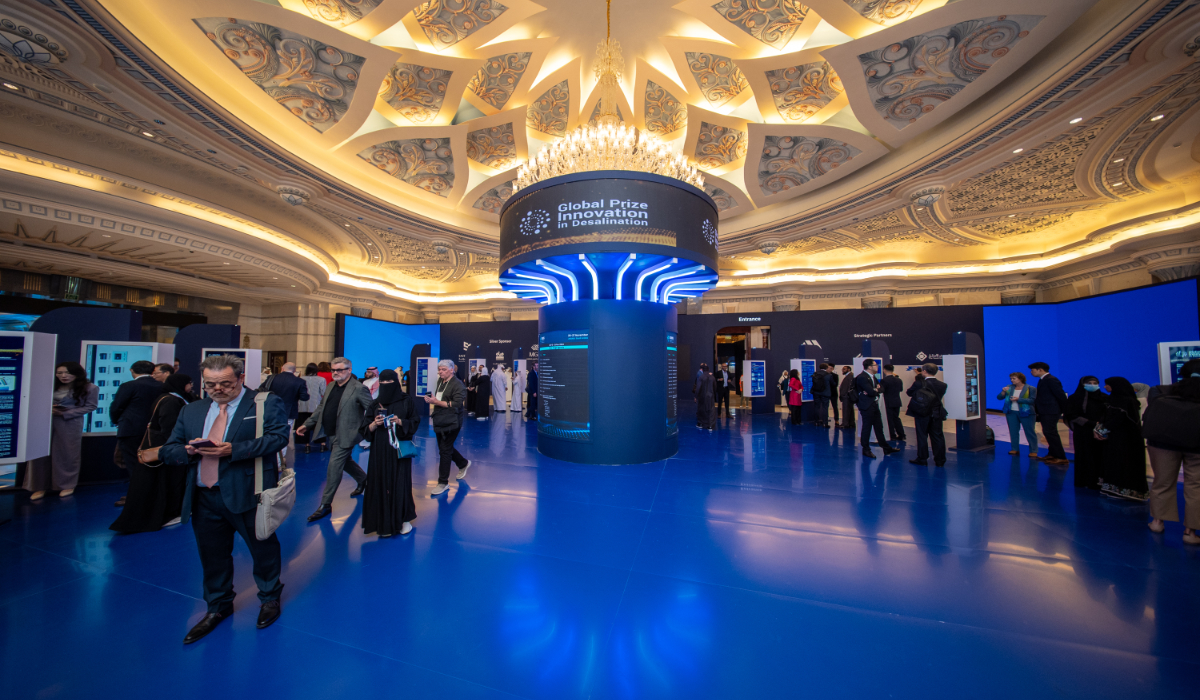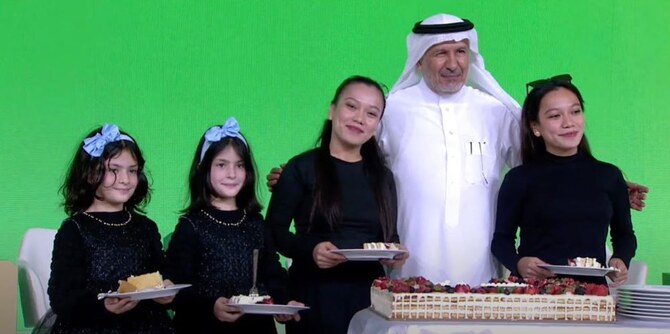THUWAL: In a remarkable feat of determination and resilience, Italian academic Matteo Parsani, a distinguished professor of applied mathematics and computational science at King Abdullah University of Science and Technology, recently completed an extraordinary hand-cycling journey across 10 cities in Saudi Arabia.
The journey, named “Athar: East to West,” covered a distance of over 3,000 km in just 30 days, showcasing not only Parsani’s physical prowess but also his commitment to promoting physical activities and raising awareness about disabilities.
The journey commenced on Dec. 17, 2023, from Dammam, traversing through Riyadh, Qassim (Buraydah), Hail, AlUla, Red Sea Global, Madinah, Makkah, Jeddah, and concluding at KAUST in Thuwal on Jan. 17, 2024.
Parsani, a paraplegic, averaged an impressive 150 km per day, hand-cycling through diverse terrain and climate.
As the professor reached the finish line at KAUST, he was greeted by jubilant cyclists, including 70 students and members of cycling communities from Jeddah and Makkah.
Over 200 people from the university community, the Saudi Authority for Persons with Disabilities, sponsors, and children cheered his approach.
KAUST President Tony Chan commended Parsani’s extraordinary journey, recognizing it as a showcase of determination and the power of the human spirit. “You are our champion not only at KAUST but in Saudi Arabia, welcome back Matteo. I know how challenging it is in the middle of the winter. This is a showcase of your grit and the power of the human spirit.”
“His accomplishment is a singular reflection of his personal resilience,” he added.
During the journey, Parsani utilized cutting-edge wearable technologies developed by KAUST scientists to monitor his body. These biosensors will contribute to a new rehabilitation program for individuals with spinal cord injuries.
Explaining it to Arab News, Parsani said: “One is to measure the level of energy, potassium and a few other quantities, they work pretty well. I was also wearing a helmet with SPO2 to see the degeneration, and an Internet of body sensor. There were several of these technologies, some new patches for ECG. They are cutting-edge technology that came out completely from KAUST and a few of them are not too far from being deployed to the market.”
Parsani said he trained intensively for a year-and-a-half and adopted a strict diet.
He said that the food situation was challenging, and he had to be cautious about what to eat. Lack of sleep became a constant issue, especially on cold nights without a heater. One notable challenge occurred when he went to Madinah, where he felt the urge to give up due to heat and exhaustion.
His perseverance, though, shone through.
“To cope, I splashed water on my face, listened to various types of music, and endured seven hours per day under the scorching sun, with temperatures reaching 34 C. Despite intending to start early to avoid traffic and peak sun hours, we often ended up starting much later than planned,” he said.
Throughout his hand-cycling journey, Parsani was warmly welcomed in each city, experiencing the genuine hospitality of Saudi Arabia, known as “hafawah,” at every stop along the way.
The professor shared his valuable experience with locals in each city, gaining insights into the unique traditions of each region.
Two days prior to reaching the finish line, Parsani drove from Makkah to Jeddah, where he was received by the Saudi Motorsports Co. at Jeddah Corniche Circuit and was marked as the first person with a disability to race on the track. There, he engaged with over 30 people with disabilities from the city.
KAUST’s enrichment program manager told Arab News: “This is the first chapter of the story, with several follow-up projects in the pipeline. Our main focus is raising awareness about the needs of people with disabilities, highlighting the importance of sports and physical activities and their impact on the body. Additionally, it aims to contribute to university research development, hosting numerous essential studies.
“What makes me proudest in this project is that as we traveled through different regions, we realized our desire to create an impact. However, the individuals we encountered, including those with disabilities, partners, supporters, and the team of over 100 participants, played a crucial role in making a significant impact,” he added.
Parsani concluded by revealing to Arab News: “We are undertaking a larger project, also centered around hand biking, scheduled for around 2028. As for the upcoming year, it’s a venture that shares some similarities, and I am keen on having other Saudi bikers with the requisite skills join, either partially or completely.”





























